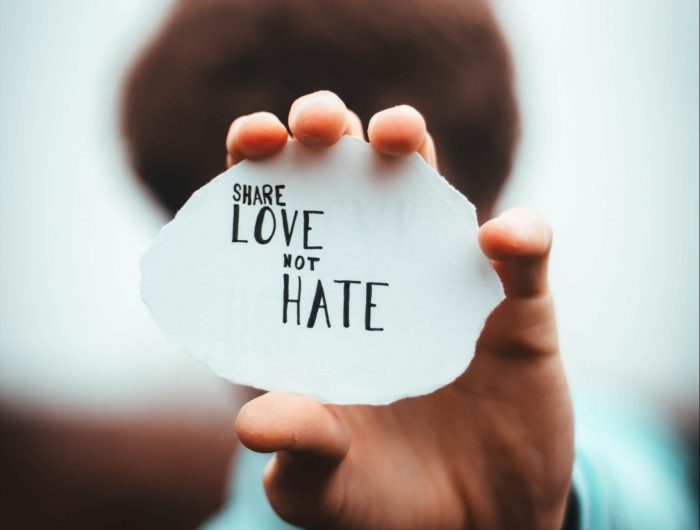Seeking a vaccine against meanness and hate
Seeking a vaccine against meanness and hate
by Rob Okun
753 words
If I had a hammer
I’d hammer in the morning
I’d hammer in the evening
All over this land
I’d hammer out danger
I’d hammer out a warning
I’d hammer out love between
My brothers and my sisters, All over this land
—The Hammer Song (If I Had a Hammer)
Words by Lee Hays, music by Pete Seeger, ©1949
When far right Canadian extremist David DePape smashed his hammer into a patio glass door to gain entrance into the San Francisco home Paul Pelosi shares with his wife, House Speaker Nancy Pelosi, it’s doubtful he had the famous protest song in mind. Rather than “hammering out love between my brothers and my sisters,” he hammered on Mr. Pelosi’s skull, sending him to a hospital ICU. His act was one of the most sinister examples of the epidemic of meanness and hate infecting the body politic not just in the US, but around the world.
Sadly, acts of violence have not slowed since DePape assaulted Mr. Pelosi (in lieu of his intended target, Pelosi’s wife), so there’s scant reason to believe that this virulent epidemic will be slowed anytime soon.
One segment of the population consistently tests positive with the meanness and hate virus: men. Not all men of course, but among the disaffected, primarily men between their 20s and 50s, the infection rate is disturbingly high. Yes, women have their shadow side but there’s no real contest: men capture the gold, silver, and bronze.
While at first blush it might seem contraindicated, researchers like Brette Steele, senior director at the McCain Institute’s program on Preventing Targeted Violence, have pointed to men’s unhappiness, loneliness, and lack of connection as predicates for spreading hate. Of course loneliness can never excuse extremist rage, and isolation is never justification for terrorizing women.
Steele says in this lethal environment it’s not surprising some men are lured to the manosphere—the websites, blogs, and online forums that promote dangerous ideas about masculinity and champion misogyny. In league with angry likeminded men, they realize a sense of belonging. Caught up in this landfill of hate—with their inner lives contaminated by hazardous emotional waste—they are easily preyed upon. Think Proud Boys and Oath Keepers recruits.
Recently, the connection between men’s extremist behavior and right wing terrorism has come into focus. A multi-country policy paper based on interviews with 3,000 participants found a correlation between sexism and gender-based abuse and promoting violent extremism. The study, “Do Violent Homes Make Violent Extremists,” examines how childhood experiences with domestic violence may be predictors of terrorist acts. The study’s authors, Laura Kropiunigg and Rafael Kropiunigg of Women Without Borders, believe if gender-inclusive programs are mainstreamed it will be possible to expose hidden gendered causes of violent extremism.
Researchers on misogyny and violent extremism Melissa Johnston and Jacqui True agree. Men who want to restrict women’s rights offer a “predictable early warning sign” for potential extremist behavior. The link in the US is indisputable; consider the ongoing assault on women’s reproductive rights.
In the midst of such hate-filled behavior, there is an uncomfortable, simultaneous truth: these men are struggling. They have the highest rates of suicide and early death. Recruited by the extreme right, many suffer from anxiety and depression, neglecting basic medical needs. They are encouraged to pose as tough guys—and strike a tough guise—endangering their physical and mental health.
So while these men’s traitorous, antidemocratic behavior must be confronted at every turn, we must also work to reach their vulnerable counterparts before they become radicalized. Also urgently important is working with middle and high school boys now, before they get sucked into a misogynist, racist, trans/homophobic, anti-Semitic vortex.
Boys growing up today are experiencing vastly different childhoods than previous generations, notes Sarah Andrews, author of a new report about boys for Next Gen Men, a Canadian NGO committed to transforming masculinity. “It’s been difficult to keep pace with a rapidly evolving “new normal”—and schools and parents alike are looking for answers,” Andrews says. “There are scant examples offering clear direction on where we go from here.”
One path is clear. While identifying men infected with the hate and meanness virus must go forward full throttle, Andrews believes we must also “challenge our preconceived notions of boyhood and be skeptical of self-professed thought leaders. We need to turn to the real experts: boys themselves.”
Their insights will be key not only to develop a vaccine to protect against meanness and hate, but also to cultivate desperately needed antibodies of compassion.
-_________________________
Rob Okun (rob@voicemalemagazine.org), syndicated by PeaceVoice, writes about politics and culture. He is editor-publisher of Voice Male magazine.

Published: Post-Record, CounterPunch, The Recorder, Davis Enterprise
© 2023 PeaceVoice

rob-okun